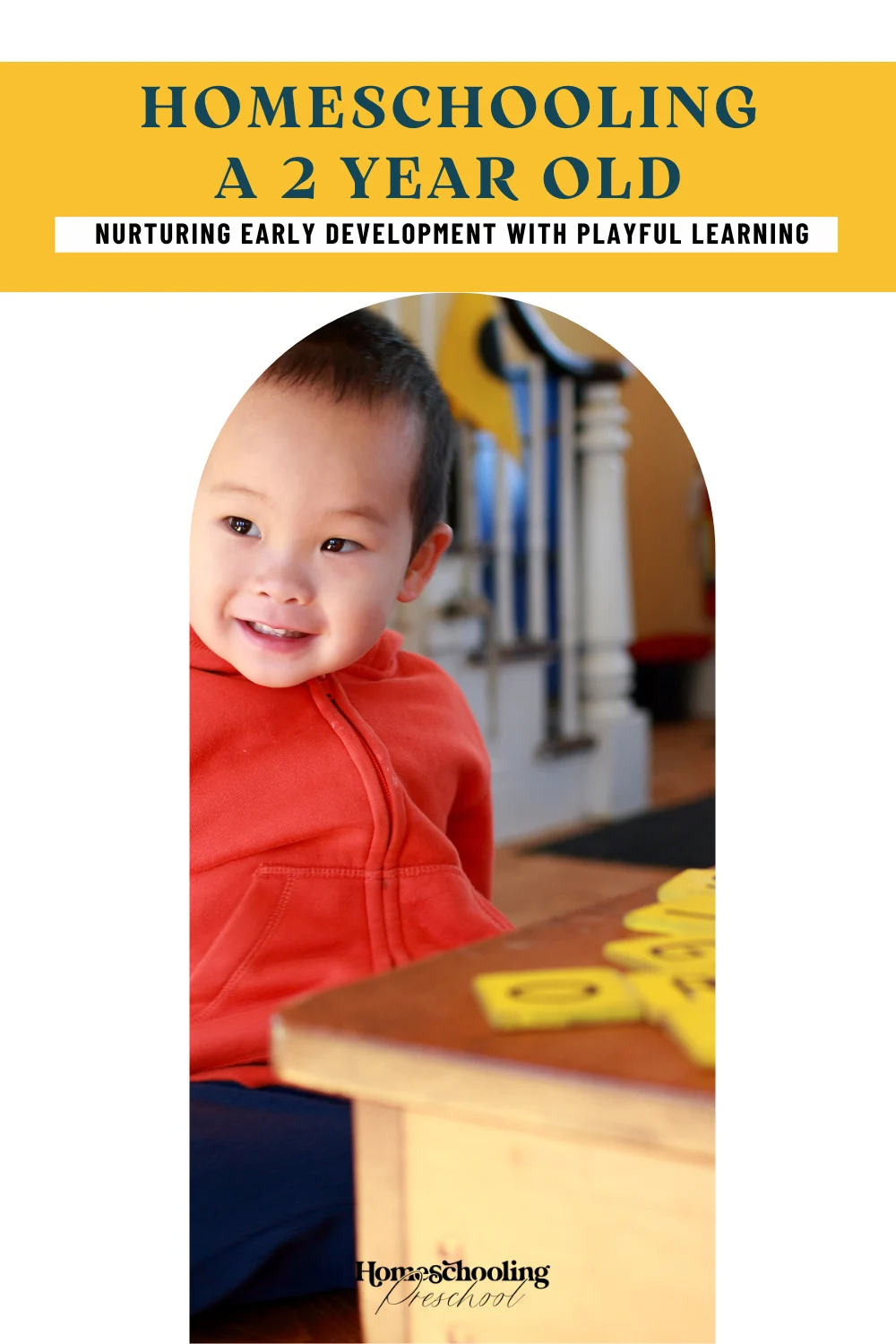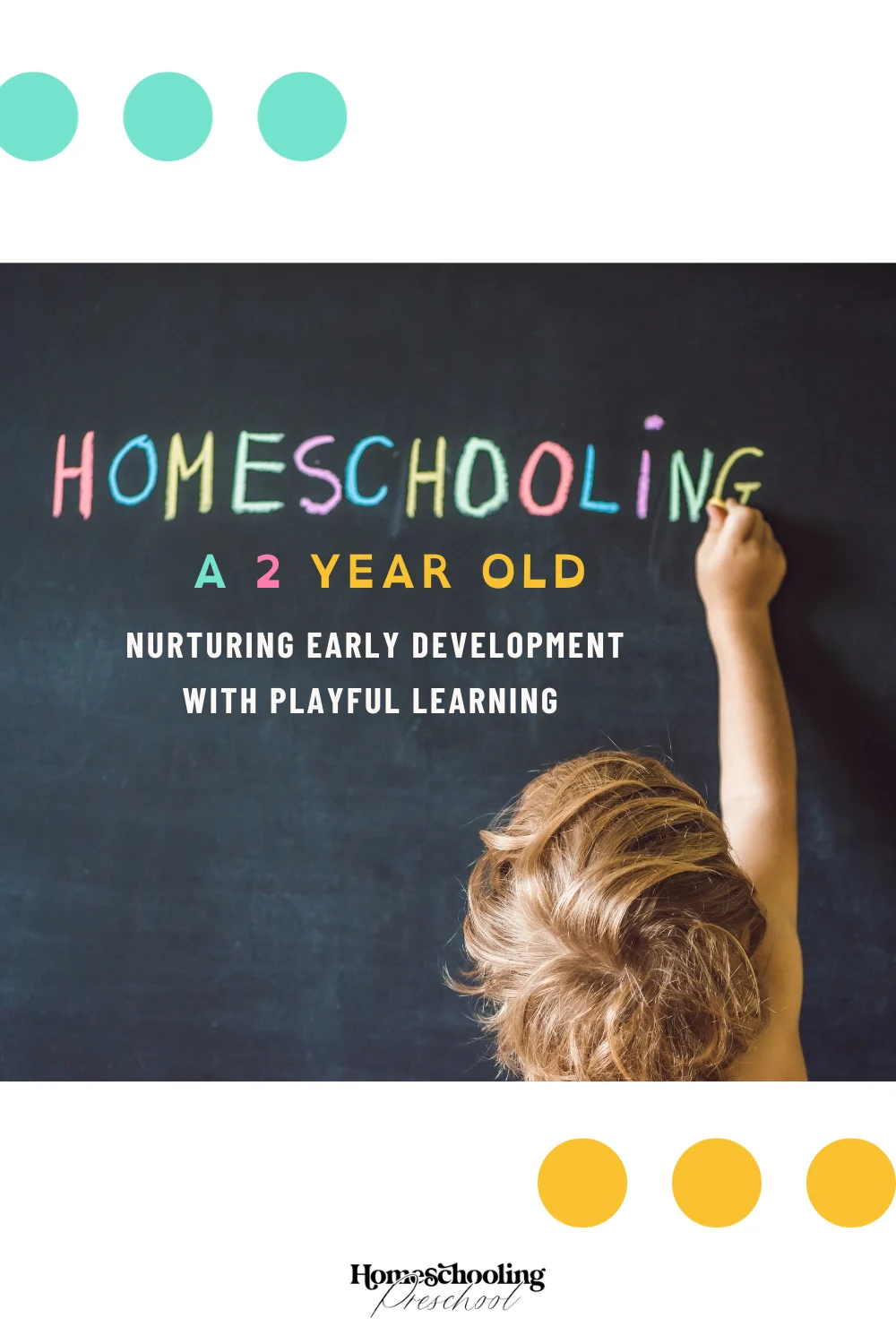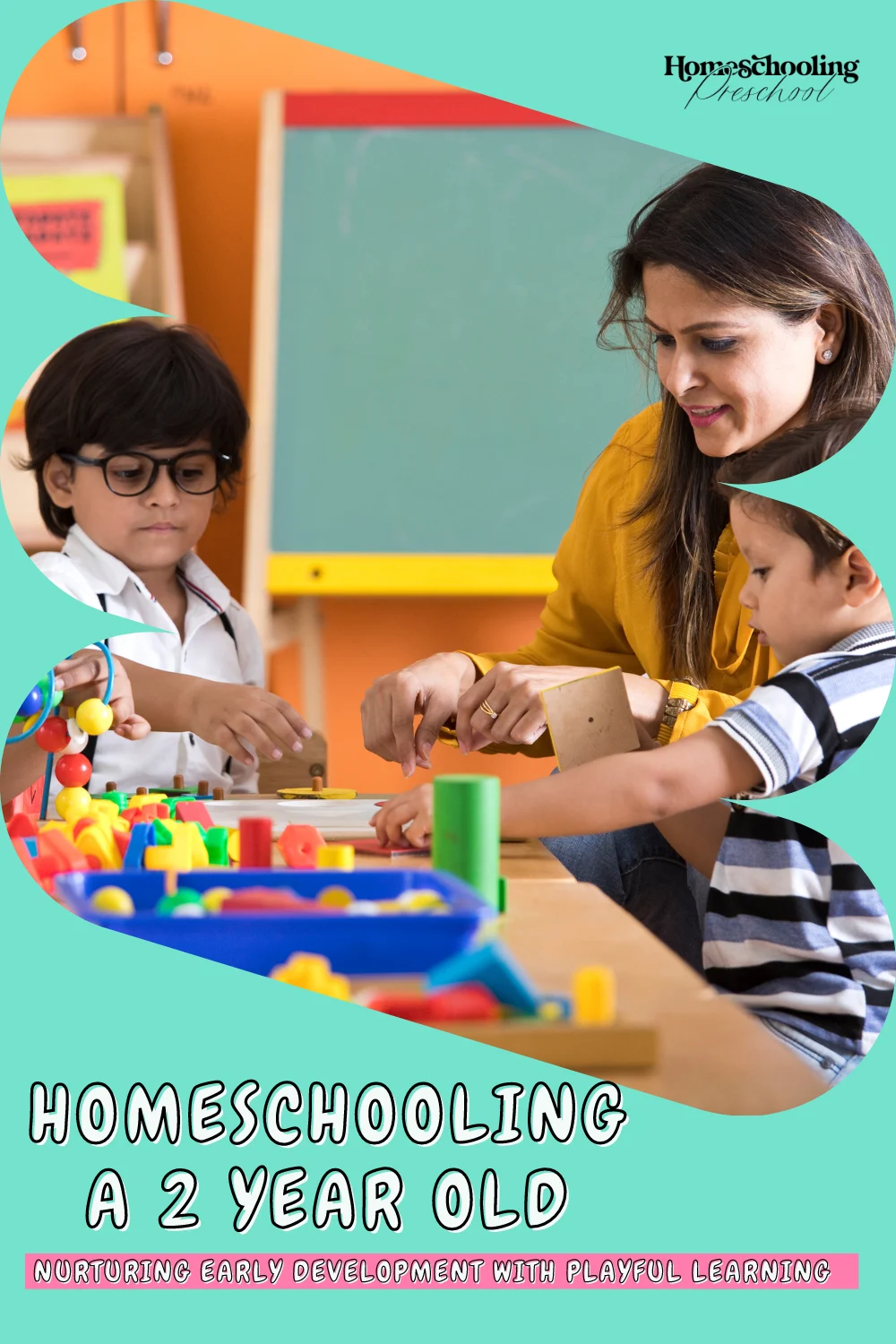Homeschooling a 2 year old can be an exciting and rewarding journey as you witness your little one’s rapid growth and development. But it’s not easy!

At this age, children are like sponges, soaking up knowledge and exploring the world around them with boundless curiosity.
While formal academics may not be the focus at this stage, homeschooling can provide a nurturing environment to foster early learning and lay a strong foundation for future education.
Let’s delve into what your 2-year-old should be learning, why play is crucial at this age, a list of developmentally appropriate activities, and some encouragement for parents embarking on this educational adventure.

This article may contain affiliate links to products that may help you when homeschooling preschool.
What Should a 2-Year-Old Be Learning?
While academic subjects like reading and math are not the primary focus for a 2-year-old, there are essential skills and concepts they can begin to grasp:
Language Development
Encourage language skills by engaging in conversations, reading books together, singing songs, and introducing new vocabulary.
Fine Motor Skills
Activities that promote hand-eye coordination and fine motor skills, such as stacking blocks, coloring, and playing with clay, help develop dexterity and control.
Gross Motor Skills
Engage in physical activities like dancing, playing catch, or crawling through obstacle courses to enhance gross motor skills and coordination.

Social Skills
Provide opportunities for your child to interact with peers, siblings, or other children through playdates or playgroups.
This helps develop social skills like sharing, turn-taking, and empathy.
Cognitive Development
Encourage problem-solving skills through simple puzzles, shape sorters, and matching games that stimulate critical thinking.

The Importance of Play at Age Two
Play is the cornerstone of early childhood education, and for good reason.
Through play, children explore their environment, develop social skills, enhance their imagination, and learn problem-solving strategies.
Here’s why play is crucial for 2-year-olds:
- Imagination and Creativity: Play allows children to engage in imaginative play scenarios, developing their creativity and expanding their understanding of the world.
- Problem-Solving Skills: Playful activities provide opportunities for children to encounter challenges and find solutions independently or with guidance.
- Social Skills Development: Playtime with peers or adults helps children learn how to share, take turns, negotiate, and communicate effectively.
- Language Acquisition: Play-based interactions provide fertile ground for language development, as children engage in conversations, narrate their actions, and express themselves through play.

Activities for Homeschooling 2-Year-Olds
When homeschooling a 2 year old, it’s important to keep activities fun, engaging, and developmentally appropriate. Here’s a of activities to inspire your homeschooling journey:
Sensory Play
Create sensory bins filled with rice, beans, or kinetic sand for tactile exploration.
Arts and Crafts
Encourage creativity with finger painting, playdough sculpting, or sticker collages.
Story Time
Read books together regularly, discussing the pictures and asking open-ended questions.
Music and Movement
Have dance parties to lively music or sing nursery rhymes while incorporating gestures.

Nature Exploration
Take nature walks to observe plants, animals, and different textures in the environment.
Sorting and Matching
Use everyday objects like buttons or toys to practice sorting by color or shape.
Water Play
Set up a water table or use containers filled with water for pouring and splashing activities.
Pretend Play
Provide dress-up clothes or props for imaginative role-playing adventures.
Outdoor Exploration
Visit local parks or playgrounds to engage in physical activities and explore nature.
Simple Cooking: Involve your child in easy cooking tasks like stirring ingredients or scooping batter.

Encouragement for Parents Homeschooling 2-Year-Olds
Homeschooling a 2-year-old comes with its unique challenges but can also be immensely rewarding. Remember these tricks:
Flexibility is Key
Embrace the flexibility of homeschooling by tailoring activities to your child’s interests and learning style.
Emphasize the Process
Focus on the process rather than the outcome. Celebrate effort, exploration, and curiosity.
Follow Your Child’s Lead
Observe your child’s interests and build lessons around them. This encourages engagement and enthusiasm for learning.
Patience is Essential
Be patient with yourself and your child. Remember that learning at this age happens through play and repetition.

Celebrate Milestones
Celebrate small victories and milestones along the way. Each developmental step is a cause for celebration.
Homeschooling a Two Year Old
Homeschooling a 2-year-old can be an incredible journey of discovery for both you and your child.
By providing a nurturing environment filled with play-based learning experiences, you are laying the foundation for a love of learning that will last a lifetime.
Embrace the joy of teaching your little one and cherish the precious moments of growth along the way.
